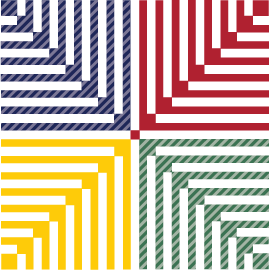In Najwa Najjar’s taut political thriller, Eyes of a Thief, a newly released Palestinian prisoner (Tareq) goes in search of the daughter he has never had a chance to meet. In the process, he reacquaints himself with his own society, uncovering dangerous secrets and stumbling into moral uncertainties.
Najjar spoke with us about the making of her recent film, which was Palestine’s submission to the Best Foreign Language Film award for the 2015 Academy Awards.
BPFF: Tell us about the back story of Eyes of a Thief. What was the true event that inspired the film?
NN: The film is inspired by a true story that happened in 2002. I can’t describe it in detail, because that would give away the plot of the movie. However, I can share that the incident came to my mind because in particular, over the last 5 years, living here in Palestine has become unbearable. Literally, unbearable. There was a complete loss of hope. I am never hopeless. But this atmosphere raised the question in my mind, what do you do when you have no options, when you are backed into a corner and there is no hope?
The film moves between two time periods, Palestine 10 years ago and Palestine now. So it goes between these two time periods and in many ways, there is no freedom and there is no struggle and no peace process. Because you can’t struggle to achieve peace when there is no peace process. These are very real questions for those of us who live under occupation. We can’t be occupied forever and live like this forever! I was trying to explore, when one hits that point, what does one do?
As I conceived the film, I was literally trying to walk in certain shoes and understand, and the best way that I could do that was to take a father’s perspective, in order to explore the losses that you suffer on many levels. To me, in so many ways, in Palestine until recently there has been a complete lack of images and stories about being a family—a parent, a daughter, a sister —or about everyday folk who, for example, visit coffee shops.
There was this void—and it has been so until only recently when Palestinians started to tell their own stories. My intent with the film was not just to revisit a specific incident. It was to, for an hour and 40 minutes, transport you to where you only see human images and try to give you another sense of a country beyond the stereotypes—that there is a people! There are Christians, Muslims, atheists—that this is worth fighting for. And ‘fight’ can be interpreted in many different ways.
That is my hope.
BPFF: How did you decide to cast Khaled Abol Naga, an Egyptian film star, and Souad Massi, an Algerian singer? What were you aiming to convey by casting Arab actors in roles of Palestinians?
NN: Initially I always look for good actors. Khaled has been one of my favorites, but I didn’t think for a minute I could bring him in. We tried, and eventually it worked through the Palestinian Ministry of Culture.
Souad is a friend of mine and I love her music. I wanted to bring her voice in to the film and her music. And there is another, deeper level—I wanted to bring Palestine back to the heart of the Arab world. It has always been the center. It seems that we have been forgotten with the Arab Spring and the whole regional disaster, yet people are now asking for what Palestinians have been asking for for 65 years. This is an Arab issue. Having Souad and Khaled and the whole cast of Palestinians. It is important also because Palestinians come from Yaffa, Haifa Aka, Gaza, Jerusalem, Nablus. There are 650 barriers and checkpoints all over Palestine. So I refused the notion that we have to be divided. No matter what, we have to bring people together through culture. You have Khaled and Souad and through them, you have Egypt and Algeria as well. Algeria is very important and Souad, what she represents is very important. Because of the history of these countries and their nationalism… Egypt and Algeria are especially important, although all Arabs are important.
BPFF: Where did you find the adorable Malak [the 9-year-old girl who plays Nur]?
NN: We found her during auditions in Balata camp. She came to support her brother during his audition, then she stole the show. The story initially was about a father searching for his son. She changed that overnight and it became a father searching for his daughter.
During filming, I was very careful to protect Malak, who was only 9, and make sure she was not overworked. She never missed a day of school. Her parents both worked on the set and her brother also had a role. We made it very easy for them to accept. I made everyone change the schedule to protect her.
BPFF: What was it like shooting this film? We’ve read that it was pretty stressful. Can you share details?
NN: This movie was shot in 25 days!! It was an absolute miracle. We filmed for 21 days in Nablus and 4 in Bethlehem. And it was made with a lot of love. People worked with their hearts. We had 11 different departments or teams (wardrobe, makeup, hair, set, décor) and all the people working on them were first-timers. They had never done this before! That is also part of our philosophy and mission: that we train. But they worked—Hani [Kort, the producer] said “they were willing to do anything for the movie, felt passion, ready to do anything for the movie.” That overcomes all adversity. There was a lot of love. There were problems and exhaustion, but there was a sense of great togetherness as well. So much so that after the movie, we had ‘the Nablus blues’ for a very long time. We missed Nablus! All in all, it was a near miracle that the film was made. We had huge fees, extras, explosions in the story… all of which we filmed in Israeli-occupied territory.
But we knew everyone in Nablus and we were very familiar with the who area even before filming, because Hani [Kort, producer] works as a water engineer and in fact he had replaced all the pipes in the whole city of Nablus. Everyone in Nablus was welcoming us with open arms.
We were working in the Old City. During the filming, the biggest problem was that Balata camp had an incursion every single night. We stayed in Nablus. We lived there for the duration. When we went to Bethlehem we stayed over there as well. The nightly incursions involved live shooting—Khaled (Abol Naga) would come out and as, ’What is that?” And we would reply, “ah… maybe a wedding?” At the end of the 21 days, he would say (sarcastically) “wedding, eh? “ Every night, every night there was an incursion. Some of the crew and the actors were from Balata including our casting director who had established a theatre in Balata camp. All the extras were from Nablus, we got people involved, and our crew was all from around us.
BPFF: The film explores some of the less attractive undercurrents of Palestinian society that are not often shown. Tell us a little about those tensions any why you decided to explore them.
NN: The truth of the matter is that occupation and the killing of leadership also breeds more corruption and breeds the shady characters. Anywhere where there is no freedom, there is a tendency for the creation of unsavory characters. This awareness, for me—everyone knows this—it is part of the narrative. I don’t do anything for sensational reasons. When you show also the huge damage to society, the real damage from occupation—the people like some characters in the movie—everyone in this movie is not black and white. Everyone is gray. No one is black and white. That is human. If you show what is going on in a society realistically without sensationalizing it at the end then you shed light on what’s really happening. Occupation breeds a lot of diseases. And they are reflected in many different ways in the movie.
BPFF: How has the film been received in Palestine and Israel?
NN: In Israel, the reaction was minimal. Only one article was written about it in Ha’aretz, and it screened once in Israel. Palestinians—when we had our opening screening in Ramallah, people who were very familiar with the incident on which the film is based wanted that exact story. So maybe they were a little upset that it wasn’t exactly that story. Palestinians are very protective over their narrative, and rightly so. But I think that the best thing that this movie has done is that it created dialogue and discourse. The worst thing is for someone to tell you alla y’atikieh il-affiyeh. Dialogue and discourse are good. The film created a LOT of discussion, which is great. This is a compliment. It provoked people to reflect.
BPFF: What is your next project?
NN: It is called The Son of a Very Important Man. It’s a love story on divorce. It is a universal story, but about Palestinians. Something very different—I’m trying something new.
Eyes of a Thief screens at the Museum of Fine Arts, Boston on Friday, October 16 at 7:00 pm. Najwa Najjar will be attending and will converse with the audience following the film.




